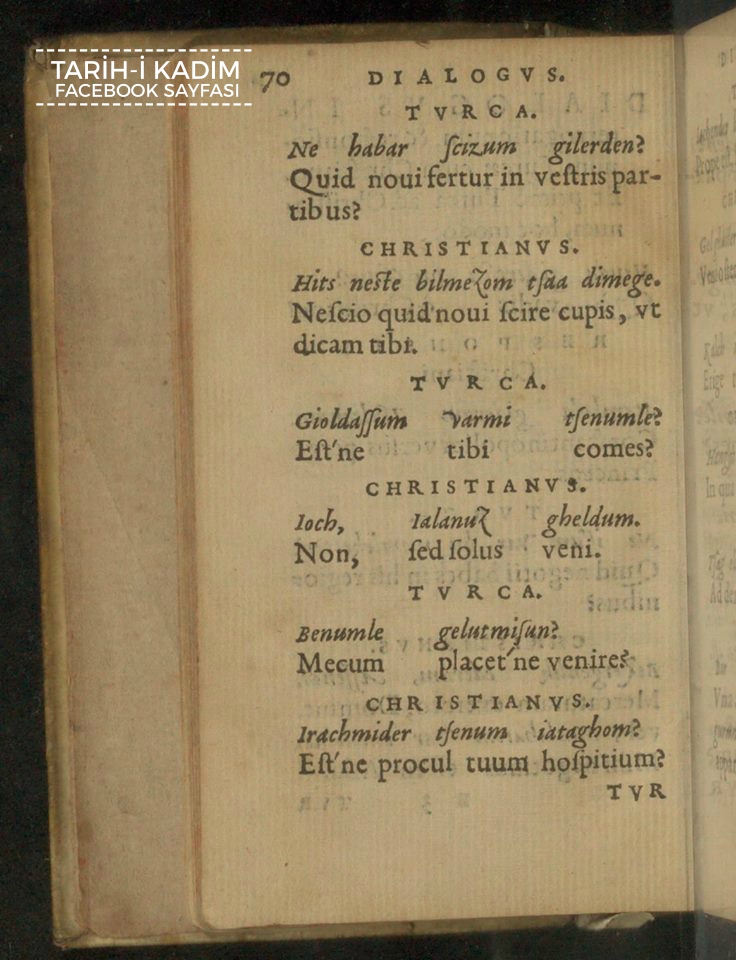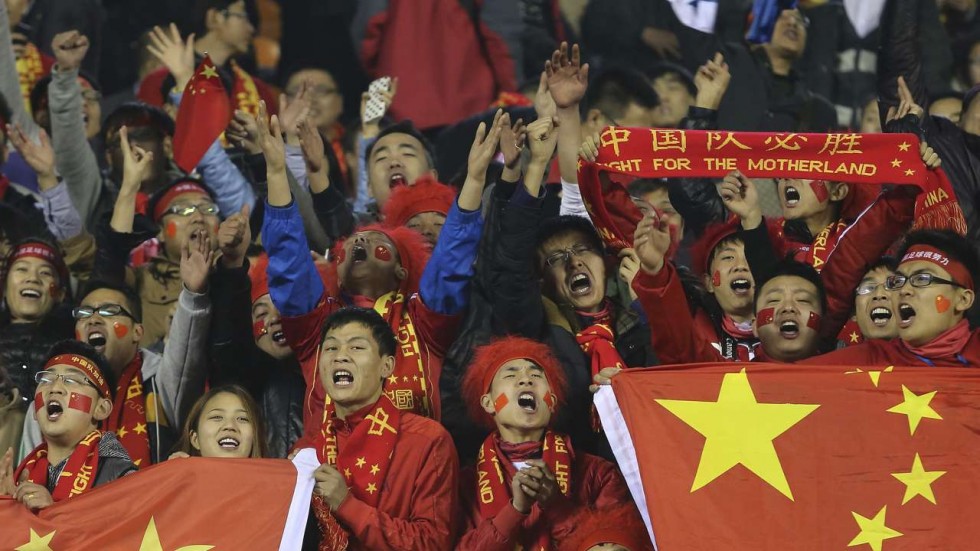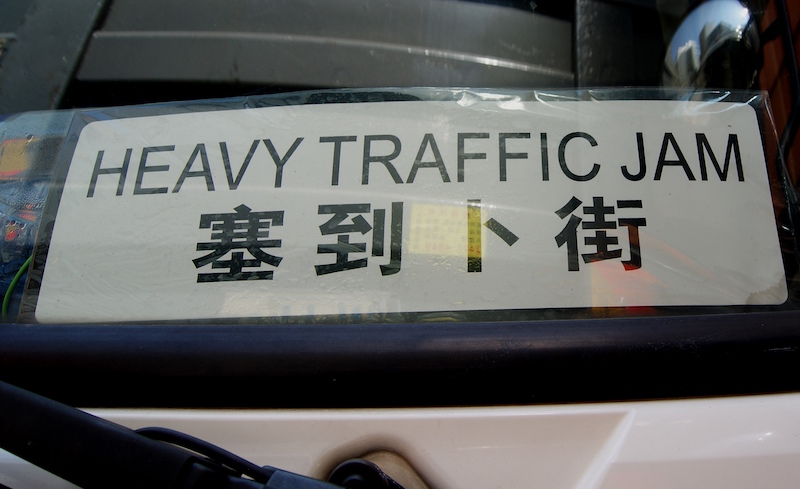Archive for Translation
August 31, 2016 @ 11:41 pm· Filed by Victor Mair under Language and politics, Transcription, Translation
In "Trump’s Tower of Babble: How the Sapir-Whorf hypothesis explains Donald Trump’s rantings — and why the rest of the world is so confused" (Foreign Policy, 8/30/16), Christopher M. Livaccari and Jeff Wang allege:
Questions about the meaning of Trump’s words… may be a type of category mistake. Trump and his supporters seem to be adherents to a strong version of what linguists call the Sapir-Whorf hypothesis — the idea that the language we use has an effect on our thinking and the way we perceive the world. There’s only one thing the Trump campaign seems to sincerely believe, in other words — namely, that if it says something enough times, no matter how disconnected from truth or logic, other people will begin to believe it.
Read the rest of this entry »
Permalink
August 29, 2016 @ 12:13 pm· Filed by Victor Mair under Transcription, Translation, Writing systems
In "Türkçe'nin 500 Yıl Önce Latin Harfleriyle Yazılışı" (7/26/16), Abdurrahman Onur Çalışır presents a Turkish text written in Latin letters together with a translation into Latin:

Read the rest of this entry »
Permalink
August 25, 2016 @ 10:57 am· Filed by Victor Mair under Dictionaries, Topolects, Transcription, Translation
This morning I received an announcement from the The Linguistic Society of Hong Kong (LSHK) that its long awaited Jyutping word list is now online. Access to the word list is available here.
Read the rest of this entry »
Permalink
August 23, 2016 @ 4:50 pm· Filed by Victor Mair under Signs, Translation
On her way back from Cornwall in April, Janet (Geok Hoon) Williams saw this sign, put up by Great Western Railway, at the train station:

Read the rest of this entry »
Permalink
August 21, 2016 @ 4:27 pm· Filed by Victor Mair under Signs, Transcription, Translation
Germán Renedo recently noticed that the government has installed bilingual street signs in the Belgrano neighborhood of Buenos Aires, where Chinatown is located. The signs transcribe the sounds of the Spanish words rather than translate their meanings.
Read the rest of this entry »
Permalink
August 20, 2016 @ 1:08 pm· Filed by Victor Mair under Lexicon and lexicography, Translation
Stuart Luppescu writes:
I recently ate at a yakiniku 焼肉 ("grilled meat") place in Kyoto that serves only chicken and pork — rather atypical. One menu item was kokoronokori 心残り. I asked the server what that was, and was told it was the flesh, blood vessels, and fat around the heart that is left over when they prepare the heart to be served. Since I am a gaijin 外人 ("foreigner"), they gave me a menu that had the entries with English glosses. For this one they wrote "regret" — they had obviously relied on Google Translate for their rendering. After I left I realized I should have taken a picture and sent it to you, but this message will have to do.
Read the rest of this entry »
Permalink
August 16, 2016 @ 8:09 pm· Filed by Victor Mair under Signs, Transcription, Translation
Michael Rank took this photograph earlier today (8/16/16) and posted it on flickr:

Read the rest of this entry »
Permalink
August 15, 2016 @ 12:37 am· Filed by Victor Mair under Translation
On 8/13/16, the Editorial Board of the New York Times published an editorial titled "China's Defiance in the South China Sea" that began with this colorful photograph:

Read the rest of this entry »
Permalink
July 24, 2016 @ 11:14 pm· Filed by Victor Mair under Language and sports, Translation
A rather disturbing (at least to me) article in the South China Morning Post (7/24/16), "How China’s quest to become a football powerhouse is revamping the beautiful game: China has emerged as deep-pocketed investor in what amounts to a global power grab for influence in football", is preceded by this photograph:

Read the rest of this entry »
Permalink
July 21, 2016 @ 9:22 pm· Filed by Victor Mair under Topolects, Translation
An anonymous correspondent sent in this photograph of a fake vehicle license plate in the window of a truck parked in an industrial area in the New Territories, Hong Kong that he took a couple of years ago:

Read the rest of this entry »
Permalink
July 10, 2016 @ 4:29 am· Filed by Mark Liberman under Found in translation, Signs, Translation
For the past week, I've been in Paris attending JEP-TALN-RECITAL 2016 ("31ème Journées d’Études sur la Parole — 23ème Conférence sur le Traitement Automatique des Langues Naturelles — 18ème Rencontre des Étudiants Chercheurs en Informatique pour le Traitement Automatique des Langues). This event certainly takes the prize for the longest acronym of any conference I've ever attended.
Attending a francophone conference gave me a chance to practice what remains of my high-school French, and the content was worthwhile as well — I heard many interesting papers and saw many interesting posters, about which more later. I haven't posted much during the past week because the internet at the conference site was badly overloaded, and the situation at my hotel was not much better. But now at CDG waiting for my flight there's decent connectivity, so here's a little something about signage translation.
Read the rest of this entry »
Permalink
July 8, 2016 @ 11:13 am· Filed by Victor Mair under Borrowing, Errors, Language and advertising, Language and the media, Topolects, Translation
The Health Promotion Board (Bǎojiàn cùjìn jú 保健促进局) of Singapore has launched a campaign to promote awareness of falling. Here's the poster they circulated in conjunction with the launch:

(Source)
Read the rest of this entry »
Permalink
July 4, 2016 @ 5:58 pm· Filed by Victor Mair under Borrowing, Names, Transcription, Translation, Writing systems
That's what practically everybody else calls her too.
There's a great article by Qian Jinghua in Sixth Tone (Fresh voices from today's China) titled "Call Me Angelababy, Maybe: Ban on foreign names in Chinese-language press reveals fear of cultural fragility." (6/30/16)
It's about a phenomenally popular 27-year-old actress, model, and singer whose Chinese name is 楊穎, which is read as Yáng Yǐng in Modern Standard Mandarin (MSM) and Joeng4 Wing6 (conventional spelling Yeung Wing) in Cantonese. Her father, from Hong Kong, is half Chinese and half German, her mother is Shanghainese. Yang Ying's stage name, "Angelababy", by which virtually everyone knows her (most people are uncertain about her Chinese name or don't know it at all), comes from a combination of her English name "Angela" and her nickname "Baby".
So what's all the fuss over her name?
Read the rest of this entry »
Permalink






